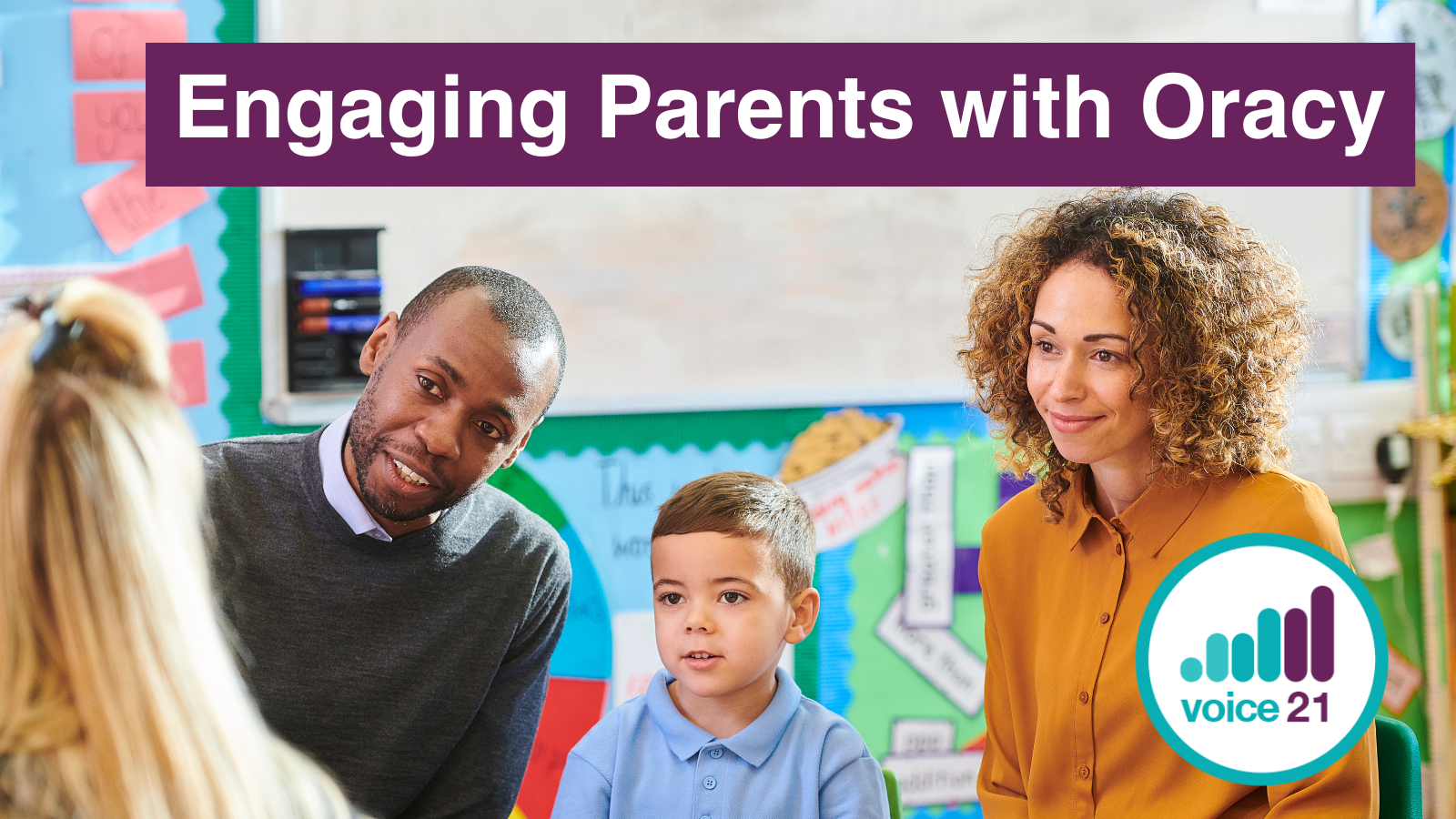
Oracy education encompasses more than just teaching students how to speak, listen and communicate; it’s also about enabling them to discover and express their voices. At Voice 21 we firmly believe oracy builds relationships – between children, with teachers and parents, strengthening belonging and a sense of community.
Through our work with schools, we’ve learnt that a focus on oracy is more effective when the wider school community is engaged and invested. Discover how one of our Voice 21 Oracy Centres of Excellence actively involves parents in their approach to oracy education and the positive effects this involvement has generated!
Involving parents in key decision making
Samarès Primary School in Jersey, a Voice 21 Oracy Centre of Excellence, has demonstrated the powerful impact of engaging parents in both their school’s oracy journey and their children’s oracy education.
The school has formed a Parent Discussion Group that includes representatives from the parent community. This group encompasses parents from every year group. The school’s development plans for oracy are shared with the parents regularly, fostering collaboration between the school and families who work together to shape and implement new ideas.
The Parent Discussion Group has provided valuable insights into parents’ perspectives on the school’s approach to oracy. Notably, a suggestion from parents led to the creation of the school’s weekly oracy homework task. This initiative has enhanced parents’ understanding of the school’s vision for oracy, enabling them to support it more meaningfully at home.
Use of oracy at Parents’ Evenings
Parents’ Evenings at Samarès Primary School have also been reimagined: each half term, parents are invited into school for a showcase of their child’s learning, where pupils express and explain their progress in their own words. In addition, parent drop-in sessions have been introduced, offering families the opportunity to explore practical oracy strategies which can be used at home to encourage thoughtful debate and rich discussion.
As a result, parental engagement has increased and communication between school and home has significantly improved. What’s more, informal opportunities to explore different aspects of oracy have helped to develop a shared language between parents and the school. This collaborative approach has supported children in developing self-regulation skills and in articulating their emotions and feelings more effectively.
Assemblies and homework now extend the learning
Since becoming a Voice 21 Oracy School, Samarès Primary has also transformed its approach to assemblies. The school now holds dedicated oracy assemblies, where children engage in meaningful discussions and receive explicit teaching in oracy skills. These assemblies also provide a platform to introduce the weekly ‘Samarès Gets Talking’ task, which is part of the schools’ homework routine.
This ‘less homework, more discussion prompts’ approach has successfully raised the profile of oracy among both teachers and parents, contributing to increased student engagement during assemblies. As one student shared, ‘Speaking in assembly used to be frightening, but now it feels completely normal.’
Inspired by Samarès Primary’s journey? Discover how your school can become a Voice 21 Oracy School here.
© 2024 Voice 21. Voice 21 is a registered charity in England and Wales. Charity number 1152672 | Company no. 08165798